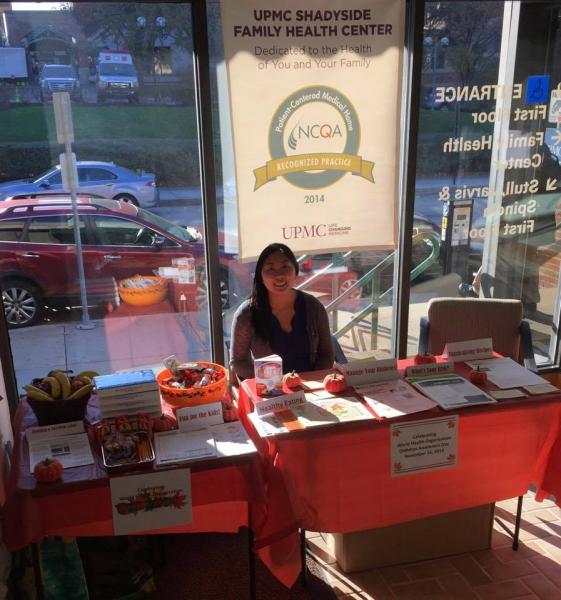Act Today to Change Tomorrow: Fighting the Diabetes Epidemic
In a new world where sugary drinks are a top calorie source in teens’ diets, and where technology and social media have replaced many after-school physical activities, diabetes has become a growing world-wide epidemic. Unfortunately, by year 2035, 600 million people may be living with diabetes (versus today’s 400 million). On the bright side, one unique aspect of diabetes is how highly preventable it is: adopting a healthy lifestyle through a balanced diet and regular exercise can prevent up to 70% of type 2 diabetes. This statistic gives new meaning to the phrase “act today to change tomorrow.”
As the Diabetes Quality Improvement Coordinator at UPMC Shadyside Family Health Center, I hope to do exactly that. This position has allowed me to improve diabetes chronic care through creating daily reminders for smoking cessation, medication management, immunizations, foot and eye exams, self-management plans, cholesterol and blood sugar checks, and more. All of these factors made me realize the complexities of managing diabetes as well as the teamwork necessary to provide optimal care for our community.
Amidst today’s chaotic array of health care challenges, I now grasp the urgency with which diabetes should stand out as a top priority. In the United States, 1 in 10 people have diabetes, 1 in 3 has prediabetes, and 9 in 10 do not know they have prediabetes. Additionally, managing diabetes is a very costly endeavor, as 1 in 5 U.S. health care dollars is spent caring for people with diabetes. Prevention through education is vital and, at the very least, we should strive for control of diabetes before complications such as heart disease, foot amputation, vision problems, and kidney disease emerge. As difficult as it is to change a lifestyle, I have seen the challenges become compounded for those living in a community where poverty, lack of transportation, poor nutrition education, mental health challenges, and homelessness are pervasive. Despite the hardships that our community and many others face, positive change is always attainable.
This November, National Diabetes Month, I had several exciting opportunities to bring about positive change with a variety of different groups. First, I presented to a group of physicians and hospital staff at the Pennsylvania Academy of Family Physicians conference my role as an AmeriCorps member at my site as well as my involvement with our project on lowering diabetic patients’ hemoglobin A1Cs (average blood sugar over several months).

Also, I educated a small group of diabetic patients on healthy holiday eating at our monthly diabetes group visit. These group visits have taught me the power of supporting one another, encouraging small changes, and opening oneself up to learn. Finally, I organized a World Diabetes Day event hosted by my site, which targeted our general patient population. It was eye-opening to see how diabetes has affected almost all the patients in some way, whether they were personally affected or knew someone who is. I was touched to see how thankful patients were to receive something as simple as a pill box or t-shirt and how joyful they were to be able to speak freely about their questions and struggles with someone willing to listen. Through the rest of my service year, I plan on continuing to be a helping hand for this community by acting today to hopefully change their tomorrows.

World Diabetes Day at UPMC Shadyside Family Health Center